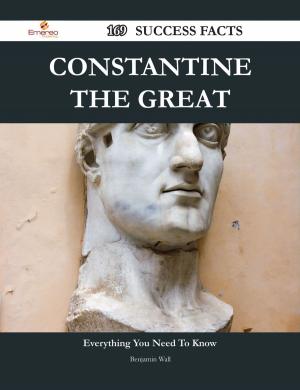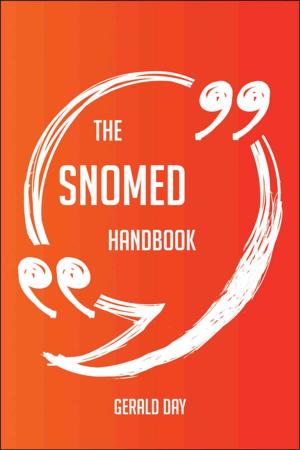First Oration of Cicero Against Catiline - The Original Classic Edition
Nonfiction, Reference & Language, Reference, Fiction & Literature| Author: | Cicero Marcus | ISBN: | 9781486416820 |
| Publisher: | Emereo Publishing | Publication: | October 24, 2012 |
| Imprint: | Emereo Publishing | Language: | English |
| Author: | Cicero Marcus |
| ISBN: | 9781486416820 |
| Publisher: | Emereo Publishing |
| Publication: | October 24, 2012 |
| Imprint: | Emereo Publishing |
| Language: | English |
He introduced the Romans to the chief schools of Greek philosophy and created a Latin philosophical vocabulary (with neologisms such as humanitas, qualitas, quantitas, and essentia) distinguishing himself as a linguist, translator, and philosopher.
Petrarchs rediscovery of Ciceros letters is often credited for initiating the 14th-century Renaissance. According to Polish historian Tadeusz Zielinski, Renaissance was above all things a revival of Cicero, and only after him and through him of the rest of Classical antiquity. The peak of Ciceros authority and prestige came during the eighteenth-century Enlightenment, and his impact on leading Enlightenment thinkers such as Locke, David Hume, and Montesquieu was substantial. His works rank among the most influential in European culture, and today still constitute one of the most important bodies of primary material for the writing and revision of Roman history, especially the last days of the Roman Republic.
Though he was an accomplished orator and successful lawyer, Cicero believed his political career was his most important achievement. It was during his consulship that the Catiline conspiracy attempted the government overthrow through an attack on the city from outside forces, and Cicero suppressed the revolt by executing five conspirators without due process. During the chaotic latter half of the 1st century BC marked by civil wars and the dictatorship of Gaius Julius Caesar, Cicero championed a return to the traditional republican government. Following Julius Caesars death Cicero became an enemy of Mark Antony in the ensuing power struggle, attacking him in a series of speeches. He was proscribed as an enemy of the state by the Second Triumvirate and subsequently murdered in 43 BC.
This is a high quality book of the original classic edition.
This is a freshly published edition of this culturally important work, which is now, at last, again available to you.
Enjoy this classic work. These few paragraphs distill the contents and give you a quick look inside:
After the usual interval he was chosen praetor, and, while holding this office, His first political speech. delivered the first of his political harangues, Pro lege Manilia, 65 B.C. in defence of the bill proposed by C.
...Though his youth was spent in open debauchery, and reckless extravagance, though he made away with his first wife and his son to marry the worthless and profligate Aurelia Orestilla, the guilty crimes of Catiline do not seem to have been any barrier to his advancement to political honors. ... Cicero called the Senate on November 8th, and delivered his first speech against Catiline, who, though overwhelmed with guilt, had still the audacity to appear among the senators.
...(a) That his nefarious plot was well known, that his personal character was stained with many crimes, that his public life was 11 abhorred by all, that his native land, though silent, eloquently pleads with Catiline to withdraw (III.-IX.).
(b) That Catiline should depart to the troops raised in Etruria, whither he had sent Manlius to carry on the war, that the great delight of Catiline was to make war on his native land, and to mingle in the society of the conspirators.
He introduced the Romans to the chief schools of Greek philosophy and created a Latin philosophical vocabulary (with neologisms such as humanitas, qualitas, quantitas, and essentia) distinguishing himself as a linguist, translator, and philosopher.
Petrarchs rediscovery of Ciceros letters is often credited for initiating the 14th-century Renaissance. According to Polish historian Tadeusz Zielinski, Renaissance was above all things a revival of Cicero, and only after him and through him of the rest of Classical antiquity. The peak of Ciceros authority and prestige came during the eighteenth-century Enlightenment, and his impact on leading Enlightenment thinkers such as Locke, David Hume, and Montesquieu was substantial. His works rank among the most influential in European culture, and today still constitute one of the most important bodies of primary material for the writing and revision of Roman history, especially the last days of the Roman Republic.
Though he was an accomplished orator and successful lawyer, Cicero believed his political career was his most important achievement. It was during his consulship that the Catiline conspiracy attempted the government overthrow through an attack on the city from outside forces, and Cicero suppressed the revolt by executing five conspirators without due process. During the chaotic latter half of the 1st century BC marked by civil wars and the dictatorship of Gaius Julius Caesar, Cicero championed a return to the traditional republican government. Following Julius Caesars death Cicero became an enemy of Mark Antony in the ensuing power struggle, attacking him in a series of speeches. He was proscribed as an enemy of the state by the Second Triumvirate and subsequently murdered in 43 BC.
This is a high quality book of the original classic edition.
This is a freshly published edition of this culturally important work, which is now, at last, again available to you.
Enjoy this classic work. These few paragraphs distill the contents and give you a quick look inside:
After the usual interval he was chosen praetor, and, while holding this office, His first political speech. delivered the first of his political harangues, Pro lege Manilia, 65 B.C. in defence of the bill proposed by C.
...Though his youth was spent in open debauchery, and reckless extravagance, though he made away with his first wife and his son to marry the worthless and profligate Aurelia Orestilla, the guilty crimes of Catiline do not seem to have been any barrier to his advancement to political honors. ... Cicero called the Senate on November 8th, and delivered his first speech against Catiline, who, though overwhelmed with guilt, had still the audacity to appear among the senators.
...(a) That his nefarious plot was well known, that his personal character was stained with many crimes, that his public life was 11 abhorred by all, that his native land, though silent, eloquently pleads with Catiline to withdraw (III.-IX.).
(b) That Catiline should depart to the troops raised in Etruria, whither he had sent Manlius to carry on the war, that the great delight of Catiline was to make war on his native land, and to mingle in the society of the conspirators.















